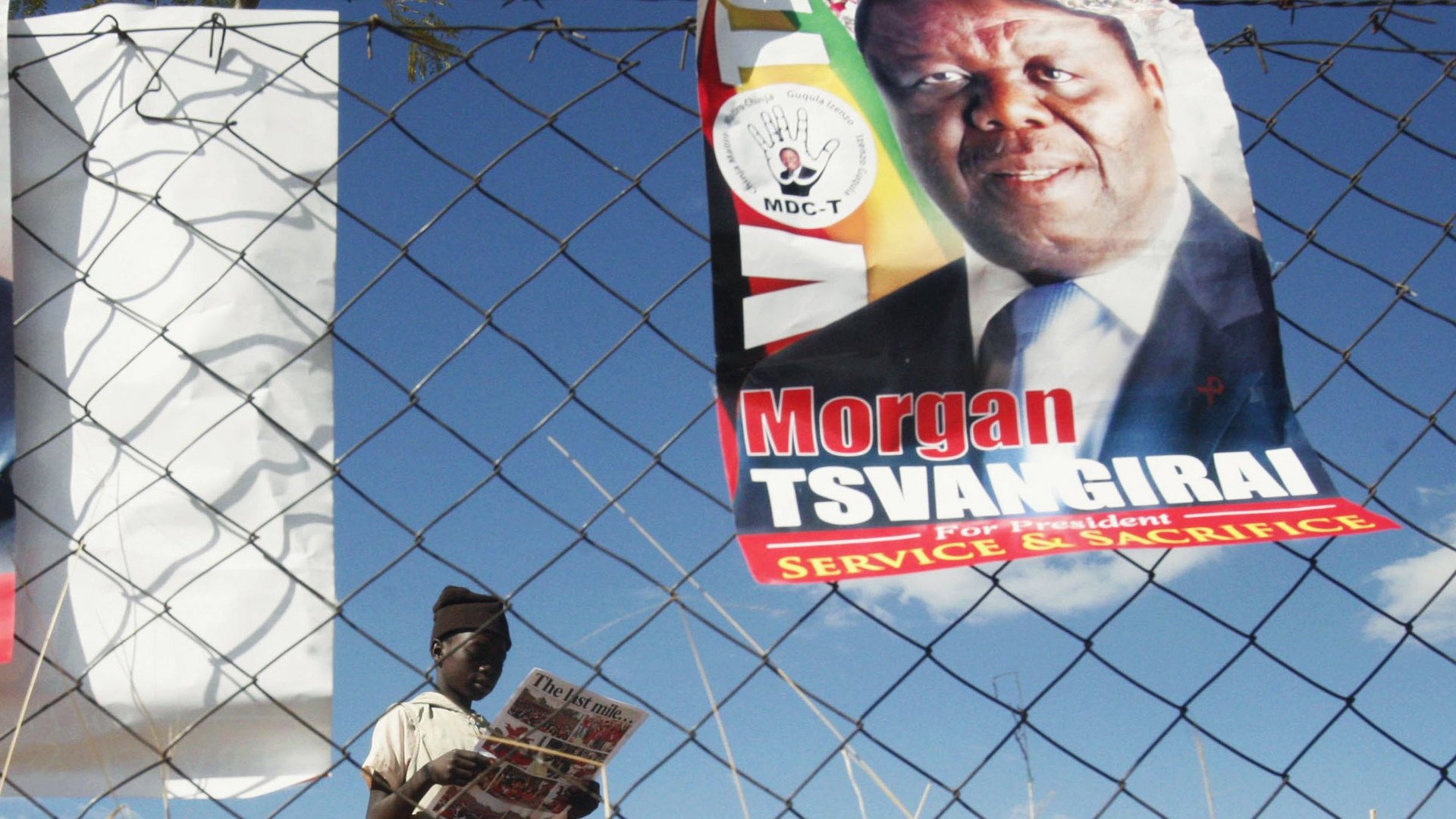This hot information tool for Africa failed to inform voters before Zimbabwe’s elections
When Zimbabwe’s tyrant-cum-president Robert Mugabe last month announced a presidential election date of July 31, there were brief sparks of hope that this set of elections might just be different, thanks to a new tool promising to broadcast information not controlled by the government. Media restrictions in the country are notoriously tight, and only Mugabe has access to state-controlled media outlets. Freedom House recently gave Zimbabwe a low press freedom score of 77 criticizing the lack of promised reforms. But the new tool, Freedom Fone, offered to inform voters about opposition parties.


When Zimbabwe’s tyrant-cum-president Robert Mugabe last month announced a presidential election date of July 31, there were brief sparks of hope that this set of elections might just be different, thanks to a new tool promising to broadcast information not controlled by the government. Media restrictions in the country are notoriously tight, and only Mugabe has access to state-controlled media outlets. Freedom House recently gave Zimbabwe a low press freedom score of 77 criticizing the lack of promised reforms. But the new tool, Freedom Fone, offered to inform voters about opposition parties.
The homegrown tool was developed by the Kubatana Trust of Zimbabwe, which aims to encourage accessibility of human rights and civic information in the country. The group, funded by the Knight News Foundation in 2008, had several potential applications in mind: broadcasting announcements to a community, sharing information about various health epidemics or providing breaking news updates in case of a crisis.
Here’s how the tool was meant to work: organizations that wanted to broadcast information would install its software, which required a dedicated computer costing about $700. The groups would update the software with audio clips with election information that their followers could access by calling an automated phone number. They would also keep a subscriber list engaged through SMS, so that even if authorities closed a phone line down, a text message could be sent to the entire user base quickly, letting them know a new number to call.
Countries such as Congo, Ghana and Tanzania have already seen just how useful Freedom Fone can be. In the Democratic Republic of Congo, Freedom Fone was used to inform women of their legal rights if they were victims of sexual assault, and it contained a feature that allowed the user to request a phone call. In Ghana and Tanzania, it was used for agricultural purposes, with farmers using the tool to send information to one another.
What made Freedom Fone a particularly exciting prospect is its accessibility; The only thing that subscribers would need is a mobile phone (which wouldn’t even need access to the internet). A World Bank report from December 2012 stated that there are now more mobile phone users in Africa than in the US, so the tool had great potential reach.
And yet, despite elections set to take place next week, Freedom Fone’s office in Harare is largely empty. Tina Rolfe, who worked in the office blamed the failure of the tool on high mobile phone prices in Zimbabwe. She told Smart Planet: “In Zimbabwe specifically, I think one of the stumbling blocks is that while mobile is ubiquitous, it’s not as cheap as in other countries, like Kenya for example.”
Indeed, 77% of Kenyas own a mobile phone, compared with 68.8% for Zimbabweans—and Zimbabwe reaches 75.6% when taking into account families who share a mobile phone. The difference between the two countries, however, is that the cost of making a phone call is still fairly high in Zimbabwe compared with other African countries. But Freedom Fone was aware of this and had developed a function allowing users to sign up to receive information through a one-time text, rather than listening to it on a lengthier, more expensive live call.
The more likely problem with the Kubatana Trust’s strategy is it didn’t optimize their time and money. In a video interview in 2009, head of technology Brenda Burrell said that their first year would be spent developing the first iteration of the tool and turn afterwards to simplifying the user experience.
Advertising the product, however, was a lesser priority. As Smart Planet noted, as its funding started to dry up last year, its advertising budget was too limited. Advertising is merely listed as a ‘factor to consider’ on its website. So while Freedom Fone has the tools to open up these elections and inform the electorate about other candidates, it doesn’t have the resources. The Kubatana Trust of Zimbabwe did not respond to our multiple requests for comment.
In an attempt to make up for this shortcoming, the Kubatana Trust today updated its website with information about the upcoming election; users can easily find out where to vote, a list of candidates and read the manifestos of the various parties. The group developed Freedom Fone knowing that internet access in the country is limited, so it’s probably not expecting a big spike in traffic.